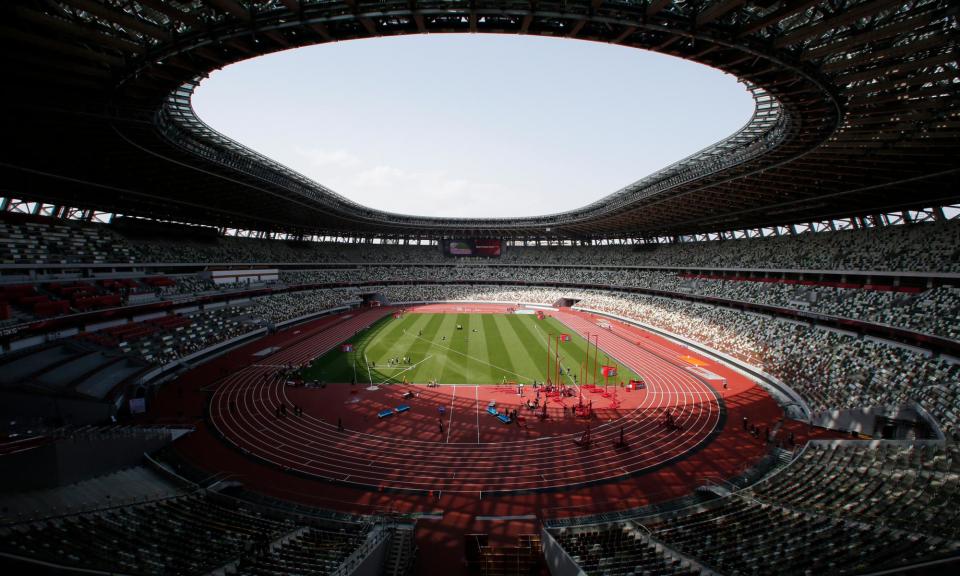Wada defends its actions over Chinese swimmers’ doping allegations

The World Anti-Doping Agency (Wada) has insisted it would “not do anything different” in its handling of doping allegations against 23 Chinese swimmers, after it pushed back against criticism of a possible cover-up from across the world of sport.
Reports last week said that Chinese athletes had been able to compete at the Tokyo Olympics in 2021 despite only months previously being found to have traces of the banned substance Trimetazidine (TMZ) in their system. The athletes, whose test results were never made public, were adjudged by Chinese authorities to have been the victims of contamination, a verdict Wada chose not to appeal against.
Related: Chinese swimmers won Olympic golds after testing positive for banned drug
On Monday, in response to the reports and ensuing public criticism from bodies such as the United States Anti-Doping Agency (Usada), a series of senior Wada officials sought to lay out their side of the story. There was, they said, no evidence to contradict Chinese findings, while the levels of TMZ found in the swimmers’ urine samples were too low to afford a performance-enhancing benefit.
Meanwhile the decision to keep the results secret was within the scope of China’s anti-doping agency (Chinada), according to Wada, and could only be overturned by appeal to the court of arbitration for sport. Wada’s general legal counsel, Ross Wenzel, argued such an appeal would have had “zero” chance of success.
“At every stage Wada followed all due process and diligently investigated every lead and line in this inquiry in this matter”, Witold Banka, the president of Wada, said. “If we had to do it over again we would do exactly the same thing. We carefully reviewed the decision of Chinada from every perspective, we interrogated every piece of evidence and gathered further information as appropriate.
“As a part of this review we collected new information on the substance in question and consulted independent scientific experts to test the contamination theory. No credible evidence of wrongdoing was provided by any source who came forward so the threshold to open an investigation was not met.”
According to the anti-doping code, authorities have the right to seek explanation for a positive test before publishing provisional results and a “likely” cause of contamination offers a possible exemption from disclosure. An investigation conducted by the Chinese Ministry of Public Security found traces of TMZ in the kitchen of the hotel in which the athletes had been staying and Chinada subsequently ruled that the athletes were the victims of contamination.
Wada said the ultimate source of the TMZ was not identified in the investigation and still remains unknown. Wada was not able to conduct its own investigation on the ground at the time due to Covid, but also argued that it would not have done so even if travel had been possible.
Wada’s director of intelligence and investigations, Günter Younger, said the behaviour of Chinese authorities had not suggested any wrongdoing. “For us, [the question was] why should they test them and report them positive knowing that will cause lots of problems for them later. So if I wanted to [hide doping] as the Russians did, I would not go this way. All the things we discussed and the experience we have in our department, if we found any indication that something was wrong we would go after it. But in this case, with the information we have currently, we would not do anything different.”
A statement released by the CEO of Usada, Travis Tygart, on Saturday described the revelations first published in the New York Times as “crushing” and accused Wada of having “swept these positives under the carpet”. Tygart suggested that “All of those with dirty hands in burying positive tests and suppressing the voices of courageous whistleblowers must be held accountable to the fullest extent of the law”.
Banka said it was “obvious” that Tygart’s statement was “politically motivated without any evidence that there was something wrong on our side”, while Wenzel – who cited Wada’s successful pursuit of the star swimmer Sun Yang as evidence of its willingness to confront Chinese doping violations – said Wada would be considering whether to pursue legal action at a later juncture.
“What is clear is that some of the comments that have been made, which suggest a cover-up of doping cases for political reasons, could not be further from the truth,” Wenzel said. “They clearly have the potential to damage Wada’s reputation so we will have to go through them with a fine-tooth comb”.

